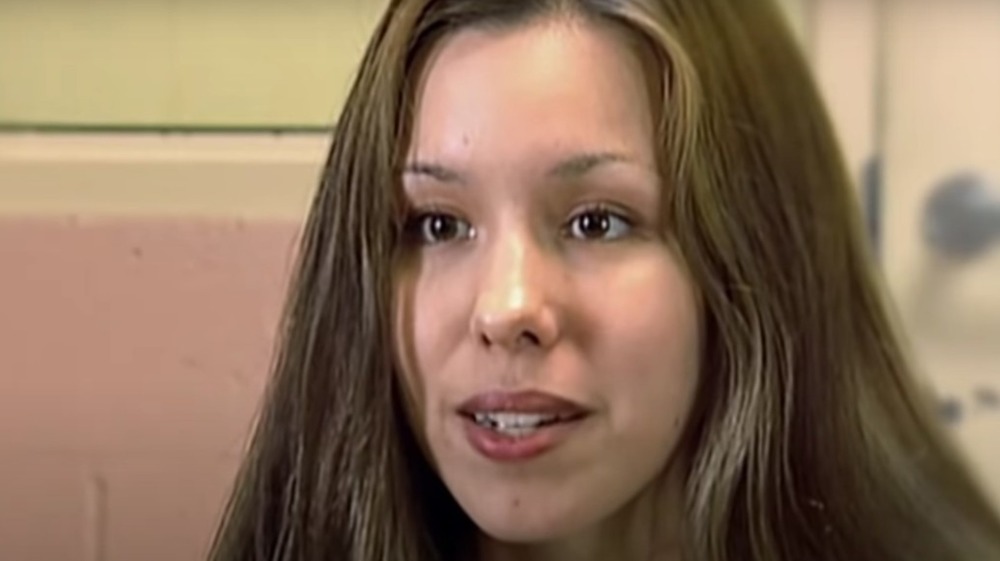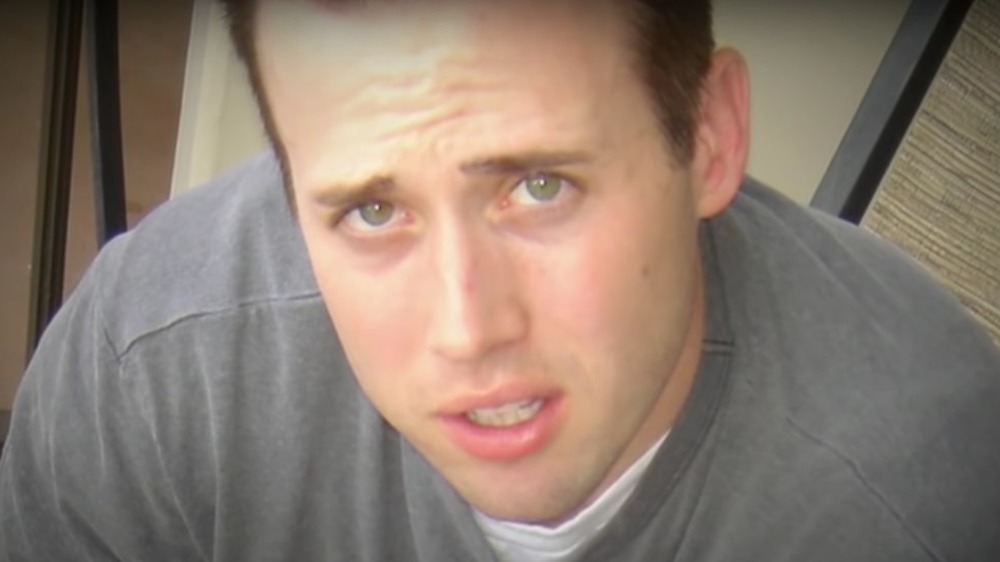The Sad Truth About Jodi Arias' Childhood
In 2015, a 34-year-old Jodi Arias was sentenced to life in prison for the murder of her ex-boyfriend, narrowly escaping the death penalty. The story began when she repeatedly stabbed said ex-boyfriend, Travis Alexander, in his Arizona home, but she wasn't convicted of the crime until 2013. The testimony was up and down, and the media was just as frenzied. Interviews from the defendant, friends, and family were at every turn as the world begged to learn the details about everyone involved.
The story went hush for a few years after the sentencing, and the world went about their usual business. Until now, that is. With If I Can't Have You: The Jodi Arias Story having just dropped on discovery+, the world wants to know everything once again, and we have some information to share.
A troubled childhood is a commonality shared by many murderers. Some believe it's a part of making them who they are, a early conditioning that flips a necessary switch in a killer's programming. Murderers, of course, come from all backgrounds, but it's not going to stop people from wondering if Jodi Arias' background was any different. Here's the sad truth about Jodi Arias' childhood.
Did family abuse drive her to kill Travis Alexander?
Jodi Arias was born in middle California and went to high school in northern California. All in all, it looks like this future killer of Travis Alexander (pictured above) had a fairly normal childhood, but that could just be because no one has much evidence to the contrary. When you come across Arias' young life in an interview, it's always a snippet that provides little to no information. There was nothing odd about her that really stood out; she was a "good girl," according to Tina Ross, a close friend from high school (via Insider). Arias herself even told ABC that she had an "almost ideal" childhood. But was it really?
As HuffPost points out, Arias claims things weren't quite so ideal behind closed doors. During early testimony, Arias made claims about the abusive nature of her parents, saying the abuse became increasingly frequent and the beatings became more intense the older she got. At one point, she even claims that her mother carried around a wooden spoon in her purse so there'd always be an instrument of punishment should the need arise. Her parents, of course, haven't admitted to these accusations.
"I am a mom — just like any other mom. I did the best job I could raising my children," Sandy Arias, Jodi's mother, told Feminine Collective.
It's possible that Jodi Arias may have suffered from the invisible affliction of undiagnosed mental illness during childhood or, at least, adolescence.
She could have suffered from undiagnosed mental health issues
According to Insider, Arias dropped out of high school during her junior year. From there, she'd move out of her parent's house as well and move in with a boyfriend. Arias' parents claim, according to ABC, that after she left their home, she became mentally unwell, to the point that her friends would call Jodi's mother, Sandy Arias, at night to inform her that she needed to get her daughter some "help." They also stated that Jodi would "freak out all the time" and that she has mental problems.
Psychology Today breaks down details of Arias' unofficial "diagnosis" by the media and the general public. Clinical psychologist Dr. Dale Archer admits he's not done an actual psychological evaluation of Arias. While a number of "armchair therapists" were quick to brand Arias with a "borderline personality disorder," Dr. Archer reminds us that a great deal of time and effort must be invested in a psychological diagnosis, and that "is just not the case here." He also cautions against "the dangers of an armchair psychiatrist trying to slap a label on someone they have never met."
If her parents' assessment of Arias' mental health struggles is indeed true, it's possible that she may have suffered from mental illness when she was a child. We have no way of knowing for sure. That being said, her parents still claim she was mentally unhealthy during her late teens.


